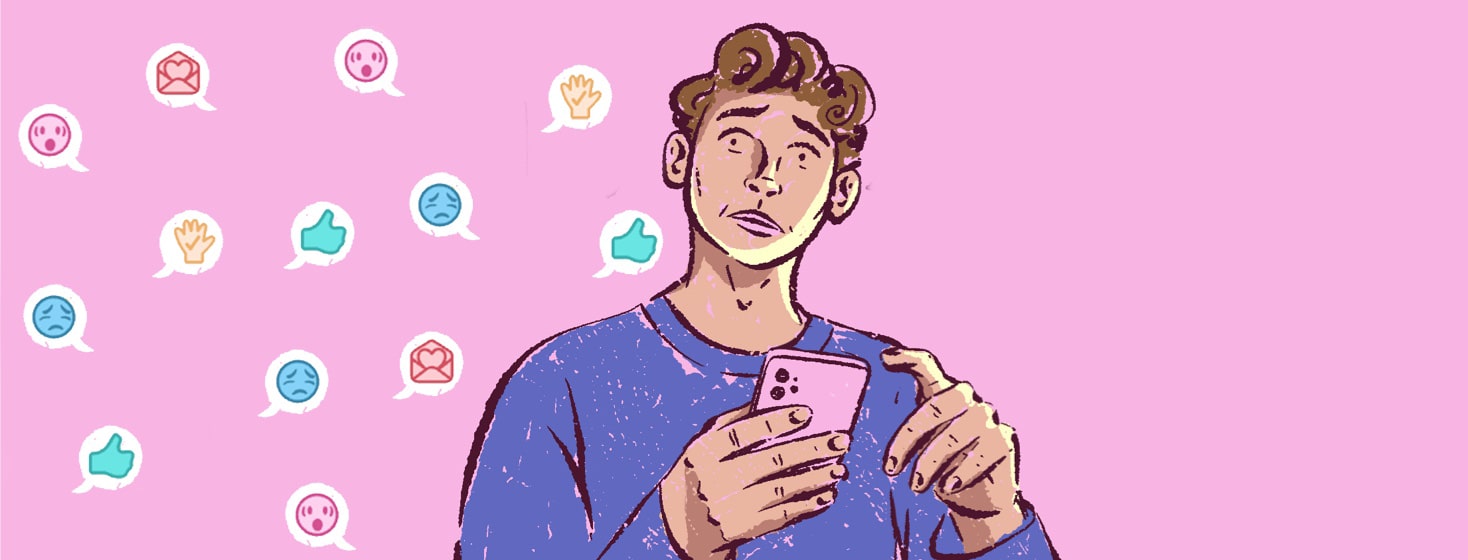A Double-Edged Sword: Social Media & Sharing Our Skin Journey
In the days of social media, artificial intelligence, algorithms, and all the other technology around us, the world is certainly much different than it was just a few years ago, let alone a decade or two ago.
There are undoubtedly a LOT of positives that come from technology. But let’s face it – there are also a lot of negatives. Just like everything else in this world, it has its pros and cons.
What are the benefits of technology?
An obvious positive side to it is right here, in these very words. I can share anything I want with you, even if you are on the other side of the world, in an instant. This certainly helps us all connect and feel less alone. It also enables me, as a patient advocate and someone who struggles with health conditions, to share my story with others like me. (And, of course, those who just want to learn and understand more about our conditions!) These are all incredible and positive things.
What are the downsides of technology?
On the flip side, especially when it comes to eczema, topical steroid withdrawal, and other skin conditions, it can be more detrimental than good. Most of us who struggle with skin conditions already feel quite insecure as it is. Many of us have also dealt with some form of bullying or another throughout our lives due to this. And while this can build character and even wisdom over time, it’s not an easy thing to deal with.
With social media, it’s all right in front of our faces, too – everyone’s “perfect” skin, “perfect” body, “perfect” life. But let’s face it, that’s not life, and that’s simply not reality.
Why do I share the “ugly” parts of my life?
When I first started sharing my story on social media platforms and even on YouTube in 2014, I used to get ONE question more often than any other. That question went something like this: “Why do you share THOSE pictures of yourself?” Of course, they were referring to the photos I would share in the midst of the worst of my topical steroid withdrawal experience. And I’ll be first to admit – those ARE pretty scary, in all honesty. My reply, even to this day, is usually something along the lines of “that’s exactly why - because I want people to see the reality.” Reality (and life) doesn’t mean only the good and the “highlight reels” (like many people show these days). Life is also comprised of grueling, horrible, and even torturous moments.
Why should I be embarrassed about what I share?
While I fully understand and respect it’s not everyone’s path to show their entire journey, why should I be embarrassed about mine? That would only mean invalidating my own reality and experience. And to me, that is a dishonor to myself and my soul. It is easy for us to judge others and their life behind a screen, never having walked a mile in their shoes. It often takes bravery, courage, and even some humility to set aside our pride and have compassion for another human being - despite what they are (or aren’t) showing on social media or in public.
How has social media divided us?
Bottom line - we never know what someone else is going through. It's extra important to remember that in this day and age. Social media, while making it a great tool for connection, has also disconnected us even more as human beings. It has ushered in an age of comparison and judging others and their value by the amount of “likes” they get (or don’t get).
So, while I truly do believe technology has brought about some great things (communities like these being a great example), it has also brought out an ugly beast in many people and the planet. A beast that is not easily tamed.
How can we stay balanced?
I strongly believe it’s so important for us to find balance in this. We can do that by being aware of both the positives and negatives, especially when dealing with a condition such as eczema.
Not everything is as it seems – especially behind a screen.

Join the conversation